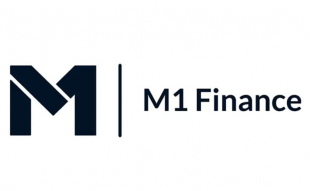Join Our Telegram channel to stay up to date on breaking news coverage
The ministry of Information Technologies and Communication (MINTC) of South American country Colombia has issued an official advice on blockchain integration into projects directed at the state level. The implementation of the guidelines is subject to the nation’s legal framework.
On 1st of July, the federal government introduced a national land registry on XRP Ledger, which is a decentralized, public blockchain led by a global developer group.
Your capital is at risk.
Why Governments are including Blockchain in Projects?
Many public sector organizations are planning to leverage blockchain technology to move away from inefficient centralized systems. As current systems are naturally costly and insecure, blockchain technology networks can offer more secure, agile, and cost-effective structures.
For example, India’s Central Bank – The Reserve Bank of India, had also expressed their intention to use blockchain for curbing frauds in banking industry.
Citizens of many countries do not trust the governing bodies as they are not aware of how the government is taking decisions and based on which factors. Blockchain eliminates this barrier of secrecy and mistrust which ensures the public’s trust on the system. This is the reason why several governments are introducing this technology into projects that needs transparency and decentralization.
Colombia Introduces Guidelines for Blockchain Projects
The document is titled “Reference Guide for the Adoption and Implementation of Projects with Blockchain Technology for the Colombian State.” A complete set of information is introduced by The Ministry of Data Applied Sciences of Colombia defining blockchain and explaining the kinds of projects that would benefit by integrating blockchain in their service.
The document also presents the guidelines that must be observed by public organizations for the expansion of blockchain projects in public management to operate them in a staggered, structured and organized manner. This will allow the general improvement of the welfare of public and the services provided by the state.
The main goal of this guide is to allow public organisations implement blockchain projects, so that the country of Colombia can be a pioneer and leader in the region in the implementation of initiatives with the application of emerging technologies.
Some Viable Use Cases of Blockchain
The uses of blockchain technology for governments are diverse and promising. The following are two of the many examples in which this technology can bring great benefits to the nation:
Health
The applications of this technology in health are many, however, one of the most significant is that of clinical history to the preservation of the supply chain of medicines by preventing them against counterfeiting.
In addition to that, there are ways to directly connect patients with specific doctors, through management systems based on blockchain that operate the appointments of specialists and the patient database to create health management more efficient.
Voting systems
A system based on blockchain will provide unique transparency that restricts possible illegal behaviours as well as practices during the times of election. This technology can help improve democracy through the development of applications that allow electoral transparency and digital voting.
Your capital is at risk.
It is to be seen how the development folds, but it is for sure that more countries may leverage the tech to increase transparency and citizens’ trust.
Read More:
- These are the Best Cryptocurrencies to Buy in 2025
- Nigerian Exchange Plans to Adopt Blockchain Technology
Join Our Telegram channel to stay up to date on breaking news coverage


